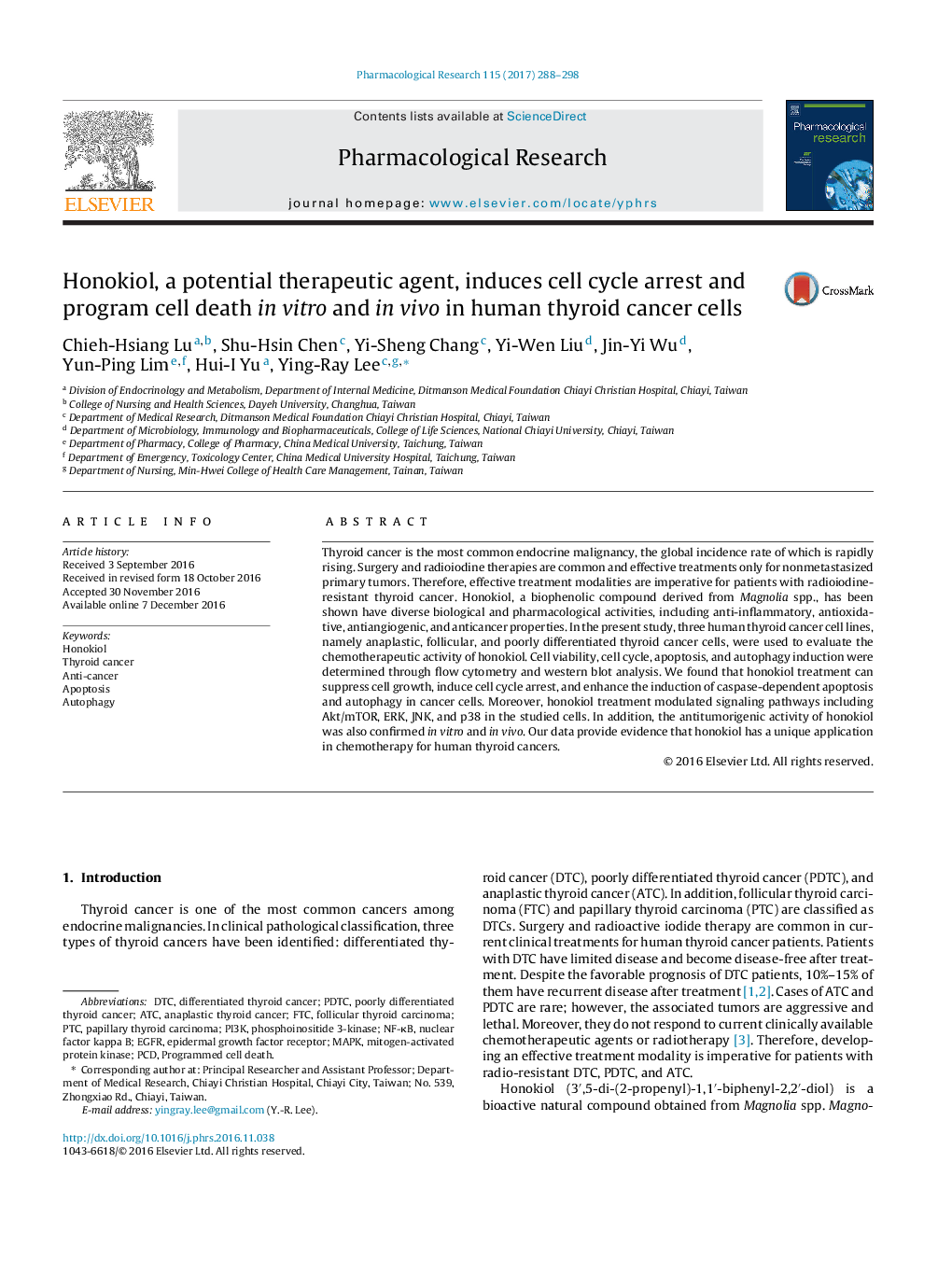| Article ID | Journal | Published Year | Pages | File Type |
|---|---|---|---|---|
| 5557536 | Pharmacological Research | 2017 | 11 Pages |
Thyroid cancer is the most common endocrine malignancy, the global incidence rate of which is rapidly rising. Surgery and radioiodine therapies are common and effective treatments only for nonmetastasized primary tumors. Therefore, effective treatment modalities are imperative for patients with radioiodine-resistant thyroid cancer. Honokiol, a biophenolic compound derived from Magnolia spp., has been shown have diverse biological and pharmacological activities, including anti-inflammatory, antioxidative, antiangiogenic, and anticancer properties. In the present study, three human thyroid cancer cell lines, namely anaplastic, follicular, and poorly differentiated thyroid cancer cells, were used to evaluate the chemotherapeutic activity of honokiol. Cell viability, cell cycle, apoptosis, and autophagy induction were determined through flow cytometry and western blot analysis. We found that honokiol treatment can suppress cell growth, induce cell cycle arrest, and enhance the induction of caspase-dependent apoptosis and autophagy in cancer cells. Moreover, honokiol treatment modulated signaling pathways including Akt/mTOR, ERK, JNK, and p38 in the studied cells. In addition, the antitumorigenic activity of honokiol was also confirmed in vitro and in vivo. Our data provide evidence that honokiol has a unique application in chemotherapy for human thyroid cancers.
Graphical abstractDownload high-res image (213KB)Download full-size image
